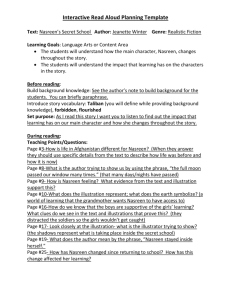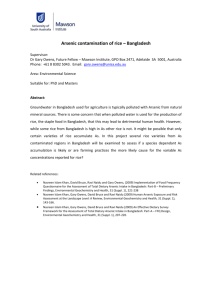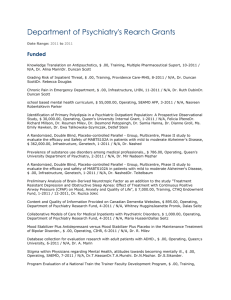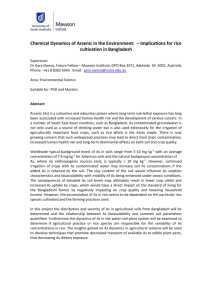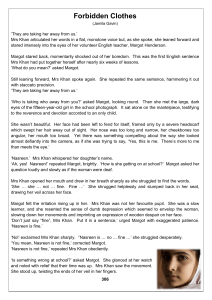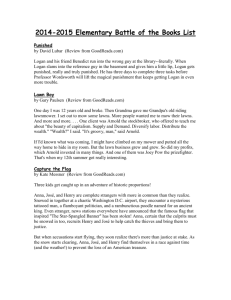A mentor tormented by his Iranian cyber‐stalker
advertisement
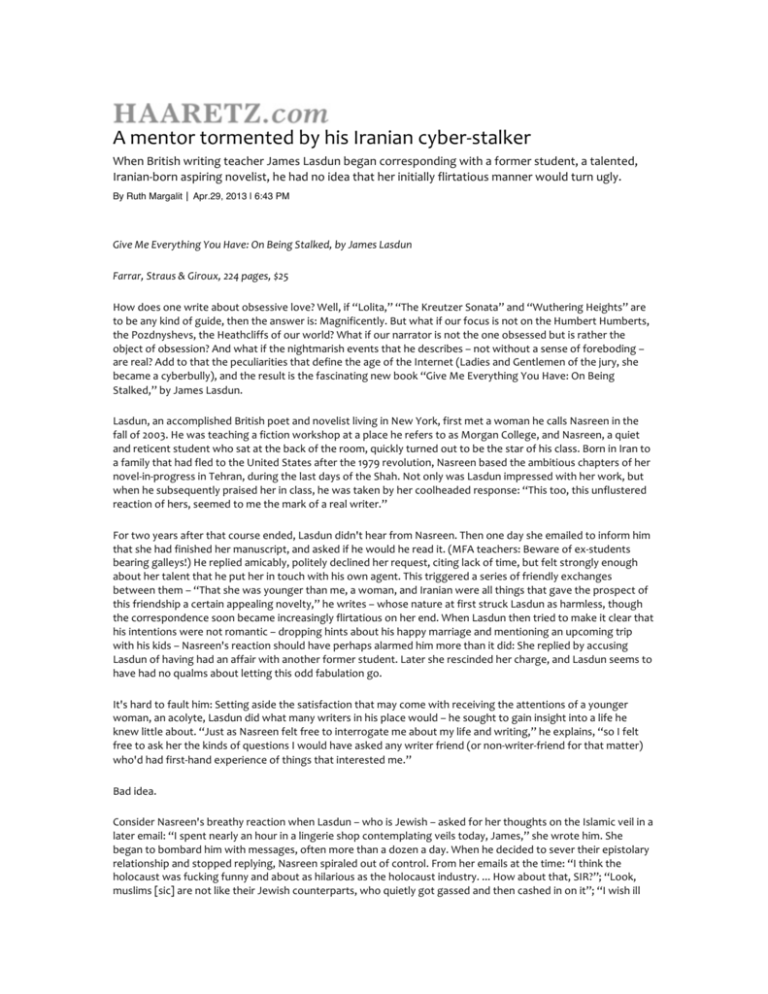
A mentor tormented by his Iranian cyber‐stalker When British writing teacher James Lasdun began corresponding with a former student, a talented, Iranian‐born aspiring novelist, he had no idea that her initially flirtatious manner would turn ugly. By Ruth Margalit | Apr.29, 2013 | 6:43 PM Give Me Everything You Have: On Being Stalked, by James Lasdun Farrar, Straus & Giroux, 224 pages, $25 How does one write about obsessive love? Well, if “Lolita,” “The Kreutzer Sonata” and “Wuthering Heights” are to be any kind of guide, then the answer is: Magnificently. But what if our focus is not on the Humbert Humberts, the Pozdnyshevs, the Heathcliffs of our world? What if our narrator is not the one obsessed but is rather the object of obsession? And what if the nightmarish events that he describes – not without a sense of foreboding – are real? Add to that the peculiarities that define the age of the Internet (Ladies and Gentlemen of the jury, she became a cyberbully), and the result is the fascinating new book “Give Me Everything You Have: On Being Stalked,” by James Lasdun. Lasdun, an accomplished British poet and novelist living in New York, first met a woman he calls Nasreen in the fall of 2003. He was teaching a fiction workshop at a place he refers to as Morgan College, and Nasreen, a quiet and reticent student who sat at the back of the room, quickly turned out to be the star of his class. Born in Iran to a family that had fled to the United States after the 1979 revolution, Nasreen based the ambitious chapters of her novel‐in‐progress in Tehran, during the last days of the Shah. Not only was Lasdun impressed with her work, but when he subsequently praised her in class, he was taken by her coolheaded response: “This too, this unflustered reaction of hers, seemed to me the mark of a real writer.” For two years after that course ended, Lasdun didn't hear from Nasreen. Then one day she emailed to inform him that she had finished her manuscript, and asked if he would he read it. (MFA teachers: Beware of ex‐students bearing galleys!) He replied amicably, politely declined her request, citing lack of time, but felt strongly enough about her talent that he put her in touch with his own agent. This triggered a series of friendly exchanges between them – “That she was younger than me, a woman, and Iranian were all things that gave the prospect of this friendship a certain appealing novelty,” he writes – whose nature at first struck Lasdun as harmless, though the correspondence soon became increasingly flirtatious on her end. When Lasdun then tried to make it clear that his intentions were not romantic – dropping hints about his happy marriage and mentioning an upcoming trip with his kids – Nasreen's reaction should have perhaps alarmed him more than it did: She replied by accusing Lasdun of having had an affair with another former student. Later she rescinded her charge, and Lasdun seems to have had no qualms about letting this odd fabulation go. It's hard to fault him: Setting aside the satisfaction that may come with receiving the attentions of a younger woman, an acolyte, Lasdun did what many writers in his place would – he sought to gain insight into a life he knew little about. “Just as Nasreen felt free to interrogate me about my life and writing,” he explains, “so I felt free to ask her the kinds of questions I would have asked any writer friend (or non‐writer‐friend for that matter) who'd had first‐hand experience of things that interested me.” Bad idea. Consider Nasreen's breathy reaction when Lasdun – who is Jewish – asked for her thoughts on the Islamic veil in a later email: “I spent nearly an hour in a lingerie shop contemplating veils today, James,” she wrote him. She began to bombard him with messages, often more than a dozen a day. When he decided to sever their epistolary relationship and stopped replying, Nasreen spiraled out of control. From her emails at the time: “I think the holocaust was fucking funny and about as hilarious as the holocaust industry. ... How about that, SIR?”; “Look, muslims [sic] are not like their Jewish counterparts, who quietly got gassed and then cashed in on it”; “I wish ill health and disaster … for you and your family. Baruch adonai, Nasreen.” And, in a moment of bloodcurdling clarity: “I think this is called verbal terrorism.” 'He was trying to sleep with me’ Along with her hateful e‐mails, Nasreen began to concoct outlandish stories involving Lasdun, his agent, and a slew of other contemporary female Iranian writers – all of whom she blamed for conspiring to steal her work. She set out to tarnish Lasdun's reputation. Among her misdeeds, she posted scathing reviews of his works in a book forum, changed his Wikipedia page, and accused him of sexual assault in comment threads attached to his articles. She also contacted his university employers, writing them: “It turned out that James Lasdun was not interested in my work but was trying to sleep with me.” The repercussion of such verbal terrorism, as Lasdun deftly shows, is that the terrorist's obsession becomes contagious. Whether Nasreen believed in her own mendacious stories is another question, but if her goal was to thrust herself into the center of Lasdun's world – she undoubtedly succeeded. “Possibly the monomania, the increasing difficulty of thinking about anything other than Nasreen, was the worst of these effects,” Lasdun confesses. “I lived, increasingly, in the medium of Nasreen's hatred. I couldn't think about anything except her, and pretty soon I couldn't talk about anything except her.” Hell, he even wrote a book about her. No psychological portrait is entirely complete, however, if it doesn't venture into the dark hallways of madness and attempts to find a light. This is where Lasdun stumbles slightly. As self‐reflective as he is when it comes to using Nasreen as material (“The necessity of using private emails in a story about accusations of plagiarism and violations of privacy was an irony I was going to have to come to terms with,” he writes), his rumination on her mental state falls surprisingly short. Not once did he attempt to meet Nasreen face‐to‐face after she launched her email tirade, and never are we awarded with a real consideration of who she is, other than a vague reference to her relatives on the West Coast and a possible incident of molestation she may or may not have fallen victim to in the past. As Lasdun admits toward the end of the book, there seems to have been a larger issue at play in his choosing to ignore the psychological aspect of Nasreen's stalking: “I have a strong vested interest, after all, in claiming that Nasreen was fundamentally sane. I want to hold her responsible for her behavior.” More than that, he believes that labeling Nasreen with a clinical condition would render her “less interesting” for literary purposes. (I'm not so sure. Was Sylvia Nasar's “A Beautiful Mind” any less nuanced for dealing with schizophrenia?) Whatever the reason, the fact that it took three years and a visit with an NYPD detective for Lasdun to consider that Nasreen may have a borderline personality disorder is baffling. Instead, he is more interested in chronicling the effects that her digital stalking has had on him. In doing so, he straddles issues as varied as Middle East politics and architecture, German philosophy and children's books. He makes immediate literary references that span Sir Gawain, St. Augustine, Sylvia Plath and Saul Bellow (and those are just the S's). His writing assignments provide a distraction: He goes on a coast‐to‐coast train ride; he even takes a trip to Israel. Somehow, he still manages to convincingly connect all these disparate dots to form an image of his stalker. And yet he needn't have bothered: Like a prey circling close to its predator, Lasdun is at his most captivating when he doesn't veer too far away from Nasreen. For example, we don't need him to offer his two cents on Israel's military offensive in Gaza, in December 2008 – or his overly simplistic connection between the plight of the Palestinians and Nasreen's own sense of marginality. (One sentence, in particular, describing Israel's action as “retaliation for some rusty old Qassams,” stings. Tell that to the residents of Sderot.) We can, however, empathize with Lasdun's honest attempt to reconcile his liberal convictions and immediate identification with his stalker's predicament, with the distorted mirror she keeps insisting he see of himself: as a tormentor, an oppressor, a hypocrite. In one of the book's most impressive passages, Lasdun admits to a sense of paranoia that had set in at the height of Nasreen's verbal attacks, whereby her constant and baseless accusations found an echo in his own feelings of fraudulence and creeping self‐doubts. Any writer who has ever despaired of their craft will recognize the sentiment. Likewise, the footprint she impressed on his online self‐consciousness forces on him a certain kind of culpability. “This cyber‐narcissism, not a vice I'd been prone to before, was another gift from Nasreen: I became – it sounds like a malady from some Victorian hygiene pamphlet – a compulsive self‐Googler.” Lasdun then uses his digital affliction to remark on the changing definition of reputation in the modern age. A person's “name,” he rightly says, was a crucial part of his or her survival in the past – a time when gossip would often trump reason or fact. That changed with the introduction of such technological innovations as trains or phones, which made it easier for people to form direct interactions with each other. These days, with the ever‐ growing influence of the Internet, we're paradoxically inching closer back to pre‐modernity – a “zone in which our public identities, our outer selves, once again began to assume their definitive form.” Within this strange zone, the effects of Nasreen's stalking still persist. One can find them in the paranoid opening line of Lasdun's personal website (which describes the site as “the only reliably accurate source of information about his work”), as well as in the online remnants of her slanderous reviews of his books. In short, Lasdun offers us a rare glimpse into the nature of modern obsession. In the process, an adage he attributes to George Eliot turns out to be eerily prophetic: “The last thing we learn in life is our effect on other people.” Today, with the onslaught of online opinions, it may just be the first thing we learn. Ruth Margalit, who reviews books frequently for Haaretz English Edition, is on the editorial staff of The New Yorker.
